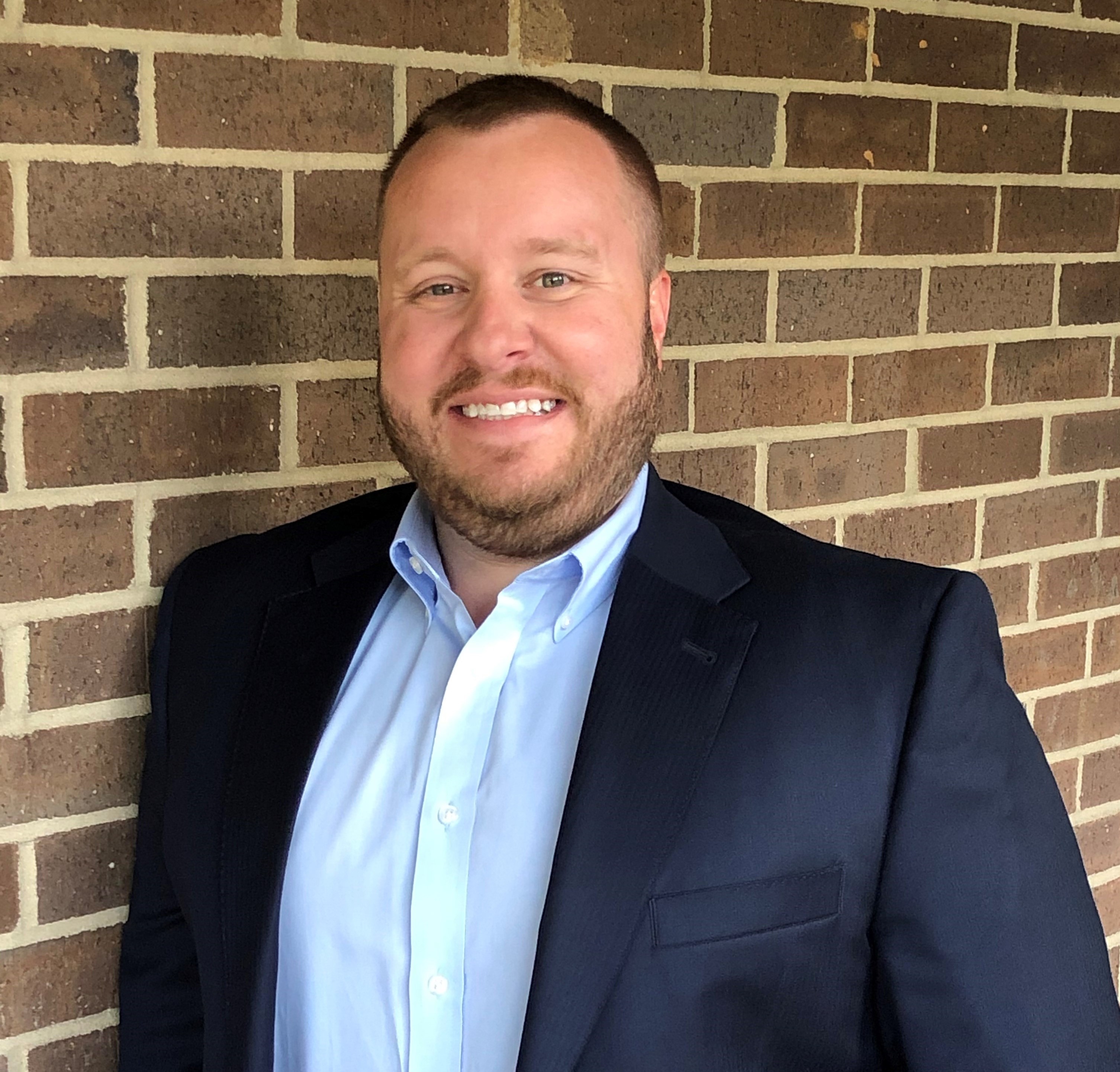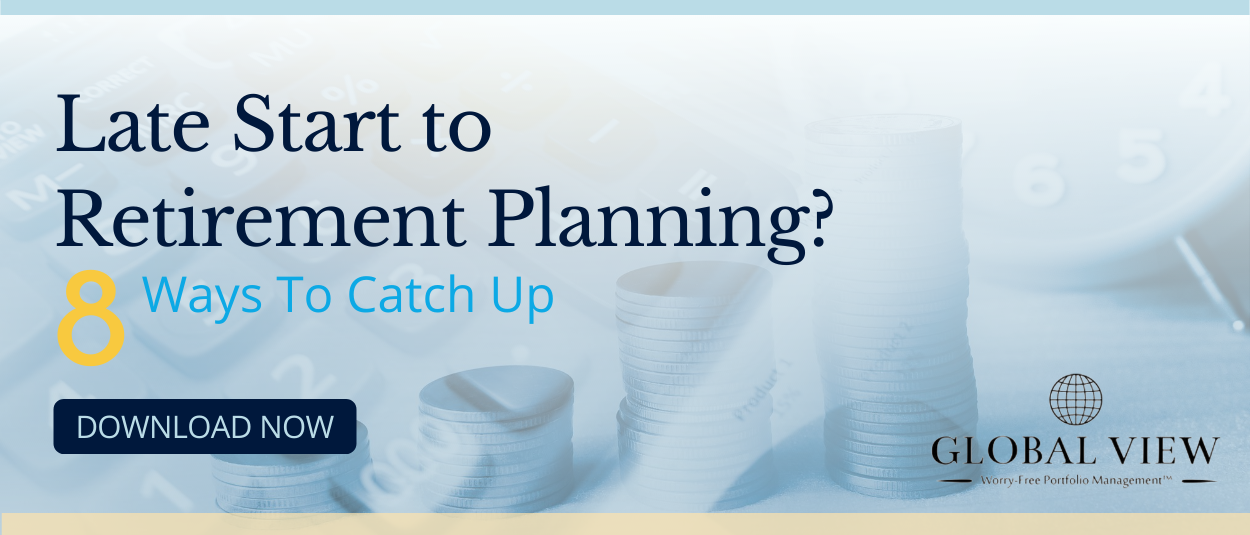Global View Investment Blog
Suddenly Out of a Job? Now What? Global View’s Checklist to Weather the Unexpected
The interim between leaving an old job and accepting a new one is an unpleasantness many top-level executives endure at least once in their careers. The challenge is to minimize financial damage during this time by knowing what to do and what to avoid.
Global View’s team of fiduciary financial advisors in Greenville, SC have compiled the following tips to consider as you prepare for the next phase of your career, whether that’s another job, an early retirement or a combination of both.
What to Do
In our experience helping high net worth individuals plan for the future, we’ve found that how you react in times of distress can make all the difference. With that in mind, the following tips can help you navigate the stressful time of a sudden job loss and maintain your calm.
Work With a Fiduciary Financial AdvisorYour initial task is to ensure you can make ends meet as you search for a new job. Don’t assume things will work out on their own or that you can maintain your current lifestyle while out of work. Discuss your situation with a fiduciary financial advisor who will listen to your concerns and has a legal responsibility to put your best interests first!
Finding a financial advisor for retirement is key to reaching your goals for the future, and whenever life throws you a curveball, be it an unexpected job loss or change in income, it’s the perfect time to talk with him or her to understand what the change means for your long-term plans. Together, you can work out a new plan that rationalizes the use of your resources to minimize long-term economic disruption. Your objectives should include immediate steps to preserve your wealth while avoiding emotional overreaction.
Use the Money in Your FSAYour Flexible Spending Account (FSA) evaporates when you separate from a job. In other words, if you don’t use it, you lose it.
Review your plan and discuss your options with a financial advisor to see if there are alternative ways in which you can spend your remaining FSA dollars. Typically, you can use your funds for items that include eyeglasses, co-pays and prescriptions. This should lead into a conversation about healthcare and how you (and your family) will stay covered in the interim.
If you’re considering an early retirement but don’t yet qualify for Medicare, or if you’re further behind in your retirement planning than you had hoped, this is an especially important conversation to have, because insurance can be expensive, and not being properly covered can be even more expensive!
Avoid Gaps in Health InsuranceWhen it comes to insurance, discuss your healthcare needs with a fiduciary financial advisor opposed to an insurance agent who may be incentivized to sell you a specific product – a product you may not really need. Determine when your current healthcare coverage ends. COBRA may allow you to extend your employer’s healthcare plan coverage for 18 to 36 months after separating from the company. Typically, you have up to 60 days from either your separation date or the date you lose coverage to decide whether to use COBRA, so don’t put it off! Two months can go by quickly!
Be prepared to increase your monthly premium payments under COBRA to the extent your ex-employer subsidized your healthcare coverage. There is also a 2 percent administrative fee tacked on.
You might want to consider getting a new policy through the Health Insurance Marketplace under the Affordable Care Act. You can take advantage of a special enrollment period within 60 days of losing your old coverage. When choosing a Marketplace policy, make sure you understand how it will differ from your old insurance plan.
Another option might be available if your spouse has health insurance. Check to see if the plan allows your addition to the policy and if you must satisfy any time constraints. Staggering benefits with a spouse can be a helpful strategy if you decide to not go back to work and instead retire early.
Create a New BudgetBudgeting is crucial, quite possibly even more so for high net worth individuals. If you are the breadwinner of your family, how will you make ends meet during your income gap. A new budget should cover your living expenses, including money-saving adjustments to your lifestyle. You may also have to account for contingent expenses, such as job search and relocation.
Stay CalmA financial advisor can help you avoid specific knee-jerk reactions stemming from the uncertainties associated with job loss. It can be hard to maintain your long-term perspective when suddenly facing financial disruption. The right advice during this critical period can prevent you from making decisions that you’ll later regret. Unfortunately, we see this happen often.
Facing an unexpected retirement? Talk with the Global View team to see how we can help.
What Not to Do
While there are many important steps you’ll want to take if you experience an unexpected job loss, there are also many important things you’ll want to make sure you don’t do!
Here are 4 actions to avoid after losing your job.
Make Retirement Plan Withdrawals Without Seeking Professional Advice First
A healthy retirement plan may be an attractive emergency-fund option when you’re facing an unexpected job loss, and possibly, an unexpected early retirement. However, you’ll want to refrain from cashing out your retirement plans without talking to a fiduciary financial advisor first! A seemingly simple decision can have a major impact on your assets.
If you have a 401(k) plan that your former employer will allow you to continue using, you might want to borrow against its balance rather than withdrawing a lump sum. A 401(k) loan provides short-term liquidity without permanently crippling your retirement plans. The loan isn’t a taxable event (unless you fail to repay it on time), it will not affect your credit rating, and you won't face penalties for early withdrawal.
You can borrow up to 50 percent of your 401(k) balance or $50,000, whichever is less. You must pay the plan’s specified interest rate on the loan plus any administrative fees. The interest payments flow back into the account. You have five years to repay the loan, and there is no prepayment penalty.
If you plan to become self-employed, you can roll your old 401(k) plan into a new Solo 401(k) plan and preserve your loan options. If you move your 401(k) into an IRA, you will lose the ability to borrow against it.
You may have other executive pension and retirement plans with their own rules. Understand your prerogatives before deciding how to use these resources.
Fail to Restore Suspended Contributions
While you and your financial advisor may decide to suspend your retirement plan contributions until you find another job, you don’t want these short-term strategies to become permanent when you do get another job. If your new salary differs significantly from what you were previously making, you may have to adjust how much of your income you’ll contribute to your retirement plan, but not making a contribution at all can put you behind quickly.
Fail to Replenish Your Emergency Fund
At Global View, as fiduciary financial advisors in Greenville, SC, we encourage clients to establish an emergency fund to lean on in times like these. While unexpected unemployment is a good reason to use these funds, it would be a grave mistake not to replenish the fund once you have resolved your employment status and income starts flowing in again. As 2020 taught us, anything can happen!
Panic and Pull Your Investments
Orderly liquidation of some investments might make good sense during a period of unemployment, but selling all your investments due to panic about your future will almost certainly be a mistake, as you may face serious tax consequences while locking in losses that might have turned around in time. You may also be left unprepared for future market gains.
Work with your financial advisor to determine which investments are the best candidates for sale. If you are worried that you can’t afford a market downturn while out of work, you have alternatives to cashing out your plans. Ask your financial advisor about hedging and diversification strategies that will protect the bulk of your investments from premature liquidation.
This Too Shall Pass
Few executives are immune to career disruption and the accompanying financial stress. However, how you weather this stressful time can make all the difference. Navigating this time alone, without the help of a financial advisor, can add even more stress. A fiduciary financial advisor can help you make good decisions – and avoid bad ones – as you embark on the next chapter of your life.
If you’re facing an unexpected job loss or early retirement, let’s talk! Schedule a no-obligation conversation with the Global View team of fiduciary financial advisors in Greenville, SC to see how we can help!

Written by Matthew Crider
Matt is a CERTIFIED FINANCIAL PLANNER™ professional who has been in the financial advisory business since 2008. He holds a BA in Marketing and Management from the University of Cincinnati and his MBA from Clemson University. Prior to Global View, Matt began his career with Fidelity Investments. His specialties at Global View include asset accumulation and investment strategies; college funding strategies; budgeting discipline and analysis; multi-generational planning; and life event changes, such as marriage, kids, home purchase, retirement, etc.
Are you on track for the future you want?
Schedule a free, no-strings-attached portfolio review today.
Talk With Us






